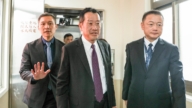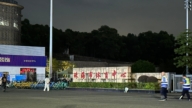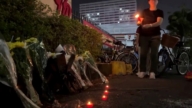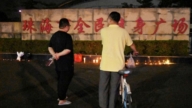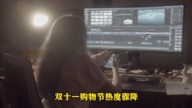【新唐人2012年11月3日讯】“北京大学公众参与研究与支持中心”发布的一份报告指称,在中心的调研人员向42个国务院下设机构,申请“2011年人均办公经费”时,被 34家拒绝,他们甚至声称申请项目“属于国家秘密”。专家表示,中共官场内部已是体制腐败,因此无法向世人交代、行政无法公开。
11月1号,“北京大学–公众参与研究与支持中心”举行了《中国行政透明度观察报告•2011-2012年度》发布会,其中《“三公”经费公开调研专题报告》引人注目。
根据《法制日报》报导,从2012年3月开始,调研人员以公民个人身份向42家部委机关申请公开“人均办公经费”信息,遇很大阻力,仅有9家公开自己信息,其余33家以种种不充分理由予以拒绝。
调查《报告》结果显示,拒绝提供“人均办公经费”信息的33家部委理由也不相同,有的声称 “部门决算正在审核批复”;有的则干脆置之不理﹔也有的认为“人均办公经费”不属于政府信息公开的范围,央行甚至说“人均办公经费”属于国家秘密。
大陆维权律师李向阳:“通过一些学者以及一些人士的分析,我们了解到,中国GDP的60%都被政府消费了。比如说,中国的公开消费,光这一项一年就是9000多个亿。每年每个单位办公经费里边,会有相当一部分流入领导的腰包之中去了。他们的经济是无法公开的。”
大陆维权律师李向阳还表示,中共政府和机构的行政都是暗箱操作,一旦公开,他们的潜规则就会被暴露,他们用于自己贪腐,甚至包二奶的经费,会无法向世人交代。
“中国政法大学–法治政府研究院”副院长王敬波教授分析指出,根据《中华人民共和国政府信息公开条例》的相关规定,“人均办公经费”属于财政预算决算的范围内,当然就属于政府信息应重点公开的范围,以任何理由拒绝提供信息和置之不理,违背条例规定。
王敬波认为,央行以“人均办公经费属于国家秘密”也不符合《保守国家秘密法》的规定。
大陆《光明网》指出,政府的行政经费的每一分钱,都来自纳税人所缴纳的税款,从逻辑上讲,纳税人与政府官员是雇佣与被雇佣的关系。出钱雇人办事的“主人”,问问被雇办事的“仆人”办了多少事、花了多少钱,不是再正当不过的一件事吗?
《中国事务》总编伍凡:“他们把国家利益当作自己的私人利益,完了用国家的秘密挡住你,不准你检查,甚至审计署你都查不到,甚至他们有多少小金库也不让知道。宁可他自己撑死了也不让饿的人吃饭,这就是整个体系腐败。一个人进去(体系)……你不想贪污……你做不到。”
伍凡指出,没有制约的中共官员无法无天,没有任何民间和媒体的监督,形成了中共官场的体制性腐败,所以他们不敢公开信息。
在贪腐远没有大陆盛行的民主社会——台湾,司法独立的最高法院认定前总统陈水扁贪污,就把他判刑十一年﹔近来马英九总统的爱将、官拜行政院秘书长的林益世,就被检察官求处重刑。
《光明网》认为,行政不透明,政治不透明,是腐败的根源,是“表叔”、“表哥”、“房叔”和这“姐”、那“姐”层出不穷的重要原因。行政透明、政治透明,是权力规范运作的前提性限制条件。
采访/李莲 编辑/宋风 后制/周天
Are Chinese Communist Party (CCP) Office Expenses
State Secrets?
Public Participation Research and Support Center in Peking
University released a report.
It alleged that the center researchers had applied for 42 per
capita office expenses in 2011 to units of the State Council.
34 applications were rejected, claiming the applications are
state secrets.
The experts said within the CCP officialdom, it is institutional
corruption which cannot confess to the world.
It is unable to disclose administrative expenses.
On Nov. 1st public participation research and
support center in Peking University
held a press release on ‘administrative transparency
observation report from 2011-2012′.
The special report on three public funds research
was compelling.
According to Legal Daily report, since March 2012,
researchers applied to publicize per capita office expenses
in 42 agencies and regions as individual citizens,
meeting great resistance. Only nine gave details
with 33 units refusing with various reasons.
The results of the survey showed the 33 ministries refused to
provide per capita office expenses for different reasons.
Some said the budget was under final approval,
some ignored it,
some believed per capita office expenses did not belong to
the public realm, the central bank even said it is state secrets.
Li Xiangyang, a human rights lawyer in China said,
“With some scholars’ analysis,
we learned that 60% of China’s GDP
is used by the government.
E.g. public consumption in China is more than
RMB 900 billion per year.
A considerable part of office expenses went into the pockets of
leaders every year. So could not be disclosed in public."
Li Xiangyang, a human rights lawyer in China also said that
the CCP is under black-box operation.
Once their expenses were publicized,
their unspoken rules will be exposed too.
Money they used for corruption, even for mistresses,
could not be shown to the world.
Professor Wang Jingbo, vice dean, Legal government research
center, China University of Political Science and Law said that
Government Information Transparency Regulations of the
People’s Republic of China, should have transparency.
Per capita office expenses belong to financial budget
and should be disclosed;
if anyone refused to provide the information or
ignored requests, it is against the regulations.
Wang Jingbo believes the central bank’s view that “office
expenses per capita are state secrets",
also means it is not conforming to the provisions
of the State Secrets Law either.
Guangming website in China pointed out that
every penny of the government administrative funding comes from the taxes paid by the taxpayers,
so logically taxpayers to government officials are
in a relationship of employer to employee.
So if the Master providing money asked the servant
how much money was spent on what things, isn’t it legitimate?
Wu Fan, editor of the affairs in China said, “They take
the national interests as their own private interests.
Then block you with threat of national secrets,
not allowing you to investigate.
Even the Audit Department cannot do investigations, and
nobody knows how many private treasuries there are.
They do not let the hungry eat even when they themselves
had too much food with more to spare.
This is a systematic corruption. If one enters their system,
it is impossible not to be corrupted too.”
Wu Fan pointed out that CCP officials had no constraints
and are lawlessness in behavior.
There is no supervision of any non-governmental organizations
or media, which formed institutional corruption of the CCP.
They did not dare to disclose the necessary information.
In a democratic society of Taiwan with much less corruption,
the Supreme Court with judiciary independence found former
President Chen Shui-bian guilty of corruption, and sentenced him to eleven years in prison.
Recently, President Ma Ying-jeou’s general, Executive Yuan
Secretary, General Lin Yishi was sentenced by the prosecutor.
Guangming website believes administrative and political
Opaqueness and personal relations in politics is corruption.
Administrative and political transparency is the premise of
a regulated power operation.




